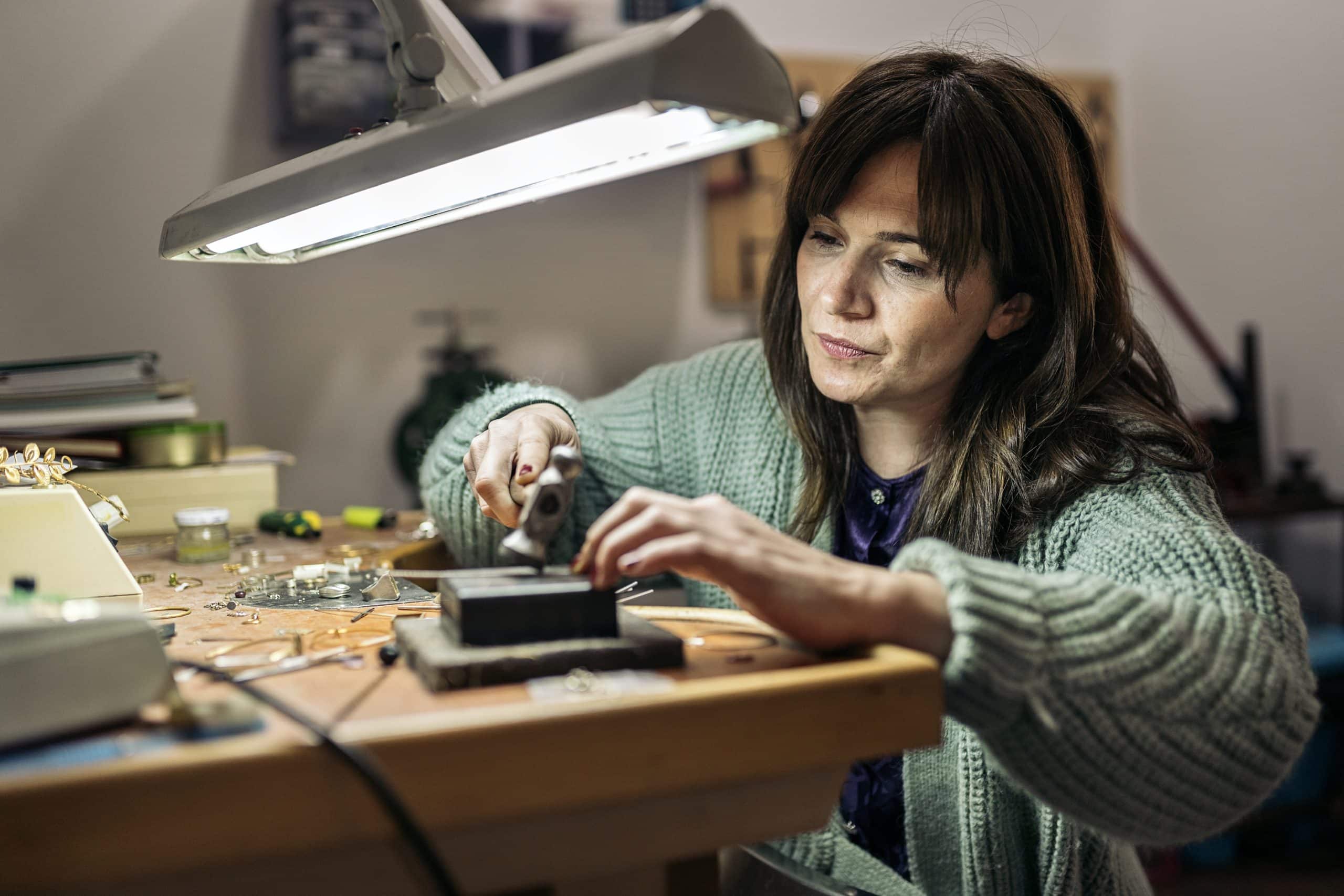In the world of electronics and robotics, DIY enthusiasts often find themselves engrossed in an exciting project. Whether it’s piecing together an Arduino-powered robot or carefully soldering the intricate circuits of a pocket-sized device, the joy of creation is undeniable. However, when it comes to organizing a home workshop, many hobbyists grapple with the question of what’s the best way to arrange their space, tools, and equipment efficiently. In this article, we’ll guide you through the process of setting up and organizing your own electronics and robotics workshop, which can help save you a lot of time and effort in the long run.
Understanding the Core Components of a Home Workshop
Workshops are unique to the individuals who use them. Your workshop should be tailored to accommodate your specific needs, but there are some universal elements that every workshop should include. These components are key to designing a workshop that’s both functional and conducive to your creative process.
A voir aussi : What’s the Best Way to Design a Cozy, Low-Maintenance Winter Garden Room?
Workspace
First and foremost, you’ll need a good, sturdy workbench or desk. This is where all the magic happens. Your workspace should be large enough to comfortably accommodate your projects, but not so large that it’s unwieldy or takes up too much room. The height should be comfortable for you to work at for extended periods. Consider investing in an adjustable desk, as it will allow you to alter your working position, reducing the risk of straining your back or neck.
Lighting
Proper lighting is essential, especially when you’re working with small electronic parts. Adjustable LED lights are a good choice, as they provide bright, focused light and consume less power.
A lire également : How to Create an Aromatic Kitchen Garden with Herbs That Thrive in the UK Climate?
Storage
Adequate storage is crucial for keeping your workshop tidy and your tools and parts easily accessible. Consider using a pegboard for hanging tools, and small drawers or containers for storing screws, wires, and other small parts. Label everything clearly for easy identification.
Essential Tools and Equipment in an Electronics and Robotics Workshop
An effective workshop is one that’s well-stocked with the necessary tools and equipment. Let’s delve into what you must have in your electronics and robotics workshop.
Basic Tools
You will need a set of screwdrivers, pliers, wire cutters, and a soldering iron. These are the basic tools that you’ll be using frequently. It’s worth investing in high-quality tools, as they’ll last for years and provide better performance.
Power Equipment
Power tools can make your work quicker and easier. A drill, for instance, is handy for making holes in your project casing or workbench. An electric screwdriver can save you a lot of time and effort.
Specialized Electronics Tools
In an electronics workshop, you’ll need specialized tools like multimeters for measuring voltage, current, and resistance, as well as oscilloscopes for visualizing electrical signals. A good quality soldering iron and solder are also essential. For working with Arduino and other microcontrollers, you’ll need a programming cable and perhaps a dedicated computer or laptop.
How to Keep Your Workshop Organized
Having a well-organized workshop can boost your productivity and make your DIY projects more enjoyable. Here are some tips on how to keep your workshop tidy and organized.
Regular Maintenance
Maintenance is key to keeping your workshop in good shape. Regularly clean your work area, tools, and equipment to ensure they’re always in optimal condition. Dust and grime can affect the performance of your tools and even potentially harm your electronics.
Efficient Layout
Design your workshop in a way that allows easy access to your tools and equipment. Your most frequently used tools should be within arm’s reach of your workbench. Store less frequently used items further away.
Involve Technology in Your Workshop
As an electronics and robotics enthusiast, you can harness the power of technology to enhance your DIY experience.
Arduino and Microcontrollers
Arduino and other microcontrollers can be integrated into your workshop setup to automate certain functions. For example, you can use them to control your workshop’s lighting, regulate temperature, or even create a digital inventory of your tools and components.
Virtual Reality (VR)
Imagine being able to assemble a circuit or a robot in a virtual environment before doing it in the real world. VR technology can help you do just that. This allows you to visualize your project, identify potential issues, and make necessary adjustments before you start physically building it.
Organizing a workshop may seem like a daunting task, but with the right approach, it becomes a fun and engaging project in itself. Having a well-planned and well-equipped workshop can make a world of difference in your DIY electronics and robotics projects. With these tips in mind, you can create a workshop that suits your needs and helps you bring your creations to life with ease and efficiency.
The Evolution of DIY Electronics and Robotics Workshops
Just a few years ago, the concept of a DIY electronics and robotics workshop was a far-off dream for many enthusiasts. However, with the advent of affordable, user-friendly technology like the Raspberry Pi, the Arduino single board, and an array of other tools, the dream has become a reality. Now, anyone with a passion for electronics and robotics can set up a personal workshop at home.
Soldering Station
A soldering station is a must-have for any serious electronics hobbyist. It typically includes a soldering iron, which is used to heat and melt solder to join electronic components together, and a power supply. It may also include a stand, a cleaning pad, and a solder reel. When selecting a soldering station, it’s important to choose one with adjustable temperature control to handle different types of projects.
Test Equipment
In keeping with the concept of a well-equipped workshop, the inclusion of test equipment like the frequency counter and multimeter is paramount. These tools allow you to measure and analyze signals and voltages in your electronic creations. A frequency counter, for example, can measure the frequency of an electronic signal, which can be invaluable when troubleshooting circuitry issues.
Hand Tools and Hardware
Beyond the soldering iron and test equipment, a variety of hand tools are necessary for any DIY workshop. Needle nose pliers and wire strippers will come in handy for manipulating and preparing wires. Additionally, having a variety of screws and other hardware at your disposal is a good idea for when you need to assemble or repair equipment.
Future of Tools: Laser Cutter and Micro Bit
Keeping the future in mind, tools like the laser cutter and the micro bit are worth considering for your workshop. A laser cutter can be used to create precise cuts and engravings in materials like acrylic and wood for your custom project enclosures. The micro bit, on the other hand, is a mini computer that can be programmed to do everything from simple tasks to complex processes, making it a versatile addition to an electronics and robotics workshop.
As you can see, a high-quality, well-stocked workshop requires a variety of tools and equipment. However, don’t be overwhelmed by the variety; remember, building your workshop is a process, and it’s ok to start small and gradually expand your tool collection as required.
In Conclusion: Building the Ideal DIY Electronics and Robotics Workshop
Setting up your own electronics and robotics workshop can be a rewarding experience. The joy of seeing your creations come to life is amplified when you have a well-organized and equipped space to work in. Keeping in mind the tips and tools highlighted above will help you in creating a workshop that not only meets your needs but also enhances your DIY experience.
Remember to tap into the power of social media to learn from other electronics and robotics enthusiasts. There are numerous online communities where you can share your workshop setup, learn from others, and even get tips for projects. As you embark on this exciting journey, remember that the most important thing is to enjoy the process. Happy creating!
















